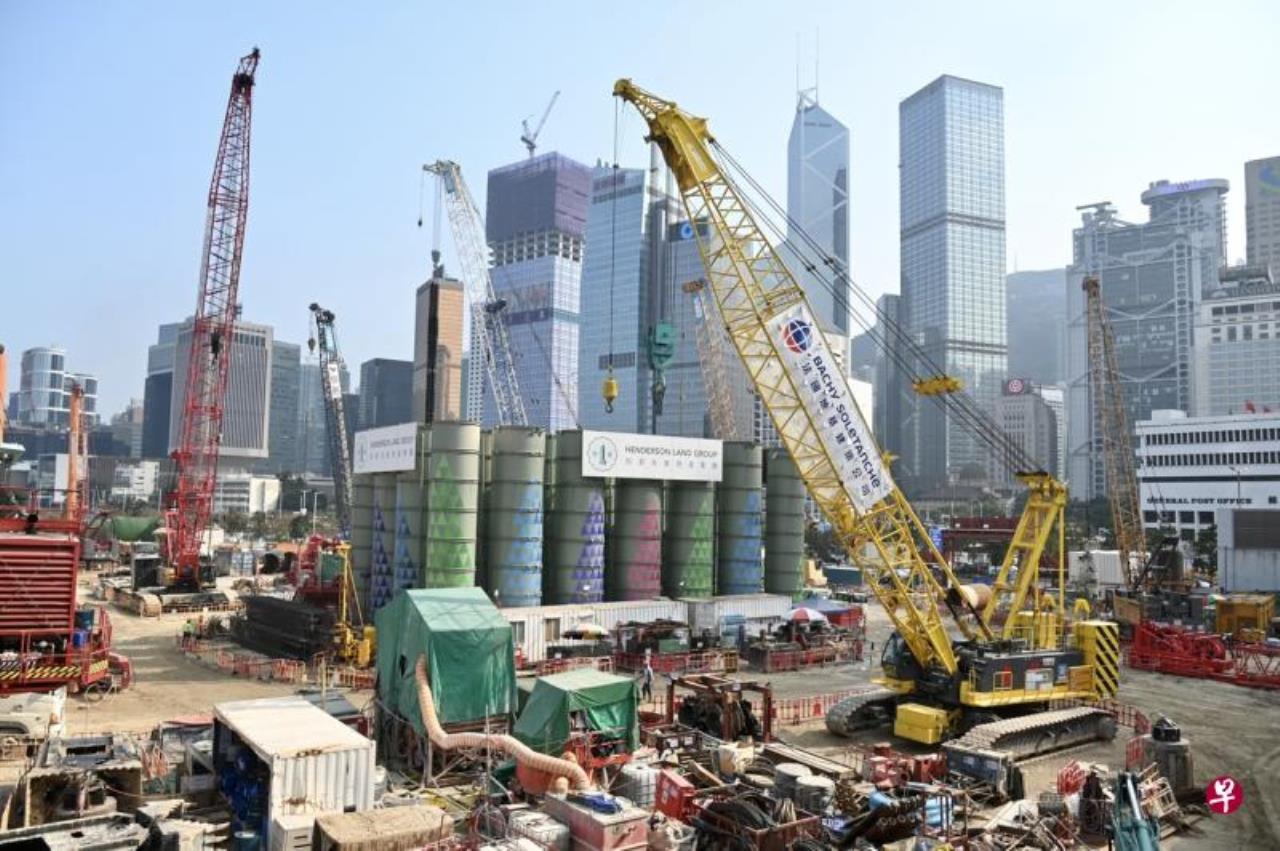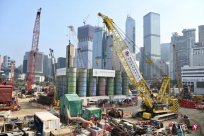
In recent years, Hong Kong has appeared in Hong Kong, and Hong Kong people with 100,000 Hong Kong people have moved to overseas.Li Jiachao said that the overall manpower will affect the activities and services they accept, and also affect the overall competitiveness of Hong Kong. The official will seriously deal with the situation of labor shortage.
Dai Qingcheng Hong Kong Report
Many industries in Hong Kong have troubled manlands after the society is restoring. Recently, the SAR government has requested that the SAR government has entered foreign workers, which has caused great controversy in society.The Chief Executive Li Jiachao responded on Tuesday (April 4) that he noticed that the construction industry and transportation industry faced the problem of manpower shortage, and the official was actively studying the actual situation and announced the overall strategy in the middle of this year.
Li Jiachao said before attending the Executive Council on Tuesday that he noticed that the construction industry's parliament estimated that the industry had a shortage of 15,000 people in the industry, and other different sectors also faced the same problem.He said that the lack of manpower will affect citizens' activities and services, and also affect the overall competitiveness of Hong Kong. The official will seriously handle the situation of labor shortage.
But Li Jiachao emphasized that the Hong Kong Government must also protect local employment, including ensuring wages.When the official makes any decision, for example, when considering the input of manpower in some aspects, the wages cannot be lower than the median income of the relevant industry. This is a established policy.Officials will also strengthen local training. After re -training programs and professional training, the relevant decision -making bureaus will be viewed and announced as soon as possible.
He said: "In terms of employment of workers and the income of workers, we have established policies. For example, what I just said, we cannot enter any workers, if his salary is lower than the median income of our industry.It is to ensure the employment opportunities of local workers and their income. "
In recent years, immigration has appeared in Hong Kong, and Hong Kong people with 100,000 Hong Kong people have moved to overseas.With the resurrection of the society after the epidemic at the beginning of this year, there are problems in many industries in Hong Kong.The survey by Shao Jiahui, a member of the Legislative Council of the wholesale and retail industry, showed that nearly 85%of the 800 wholesale or retailers interviewed believed that the long -term shortage of manpower or difficulty in recruitment, about 91%supported input foreign workers.
Shao Jiahui pointed out on Tuesday that Hong Kong now has a comprehensive recovery, and all walks of life lacks people, and can only retain employees through continuous salary increase.However, Hong Kong has just begun to reconnect. Many companies' business has not yet recovered. If costs cannot be passed on to consumers, they may be forced to abandon their operations.
Shao Jiahui suggested that the Hong Kong Government enters workers from the Guangdong -Hong Kong -Macao Greater Bay Area to facilitate them to return to the two places today to avoid affecting the rent of housing in Hong Kong; and restricting foreign workers' salary as the industry medium to ensure that the salary is not too lowEssence
In addition to the retail industry, the Hong Kong transportation industry also faces the problem of lack of manpower.According to the Hong Kong media quoted, the Hong Kong government is considering entering foreign workers in the special line industry.
Zhou Guoqiang, the chairman of the Shipbus Federation of Hong Kong, expressed support on Tuesday.He pointed out that the Hong Kong Government implied 500 people first, but the industry currently lacks more than 1,000 drivers. It is suggested that the official arranges the route of foreign workers to drive near the pass to facilitate them to travel to and from the two places.
The labor community opposes the introduction of foreign workers
However, Hong Kong's labor community opposes the introduction of foreign workers.Chen Fengyuan, director of the public minibuse branch of the General Trade Union of the Automobile Transportation Industry, was worried that the method of “smashing Hong Kong workers' rice bowls” also said that mainland drivers are used to driving on the left. Unlike Hong Kong, the road conditions in Hong Kong are complicated, and foreign workers cannot be competent.
Huang Guo, the chairman and legislator of the Legislative Council of the Federation of Industry and the Legislative Council, believes that entering foreign workers will reduce the increase in the salary of local workers. It is recommended that the official investigating the salary adjustment of all walks of life first.Still invited employees to consider entering foreign workers.
Wang Hao, the research director of the Hong Kong Society Research Association, said in an interview with Lianhe Morning Post that the current industries such as construction, transportation, and Anlai in Hong Kong are urgent for labor demand, and indeed urgently need to increase people, but they cannot ignore employment of local migrant workers.For salary benefits, the formulation of relevant policies should be particularly cautious.
He suggested that when the official introduction of foreign workers should be parallel with the release of the local labor force, after careful coordination of the actual labor needs of various industries, formulate the total number of labor quotas, and at the same time formulate the upper limit of labor ratio for various industries;Labor approval procedures to speed up approval.
Wang Hao pointed out that in the long run, the situation of improving human resources tensions involves multiple policies. While the Hong Kong government actively improves the population structure and intensifies the cultivation of local talents, it is also necessary to comprehensively build a strategy of attracting overseas talents, including housing, including housing, in housing, in housing, in housing,Life, children's education and other support policies, as well as support in terms of scientific research resources, start -up funds or entrepreneurial resources.


